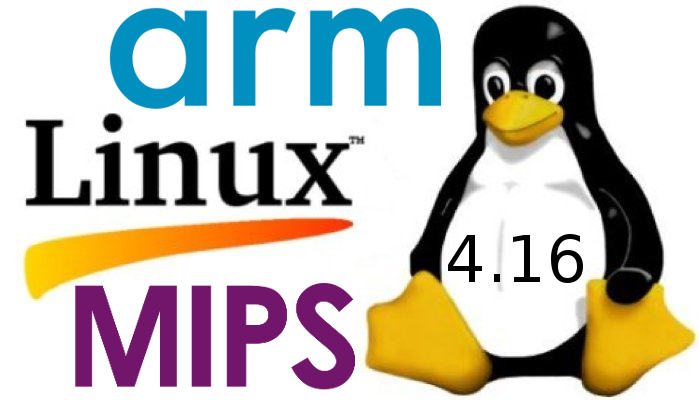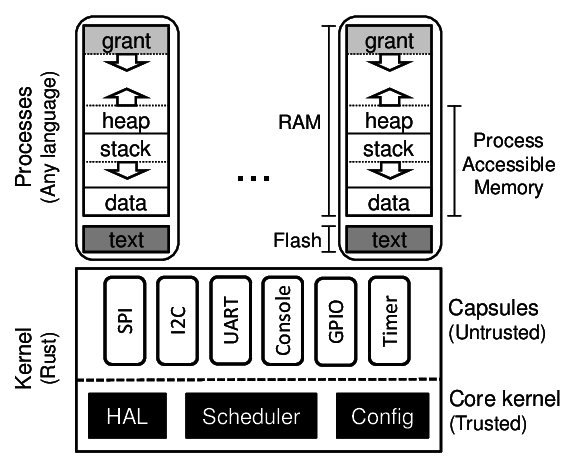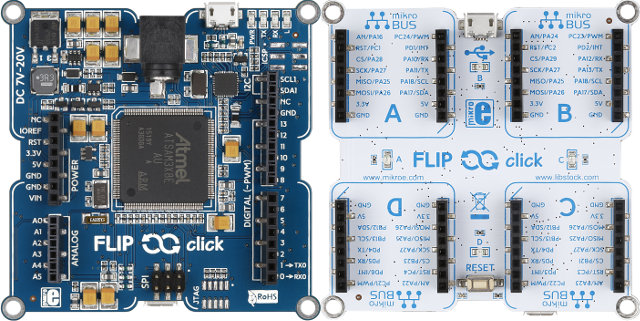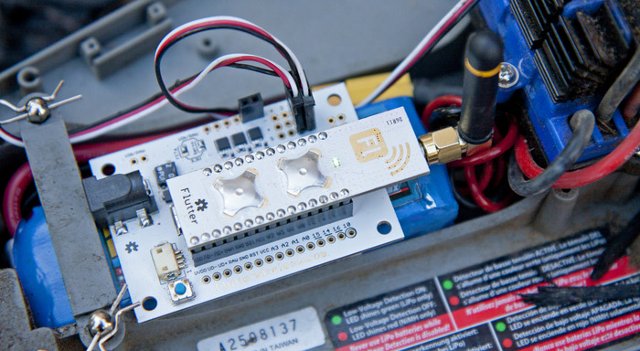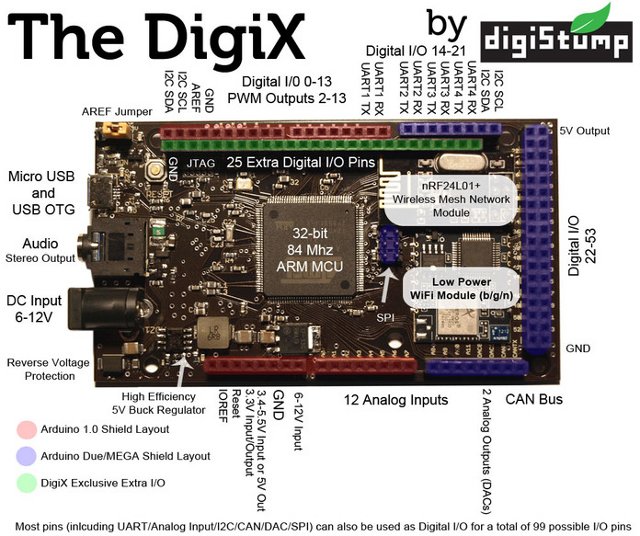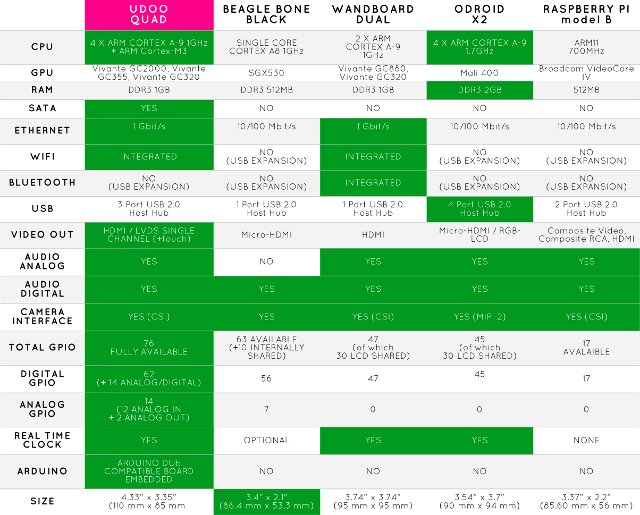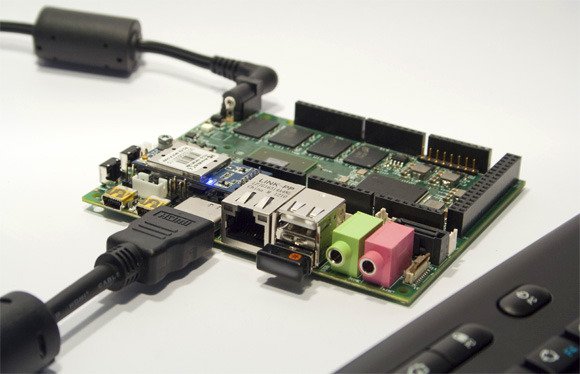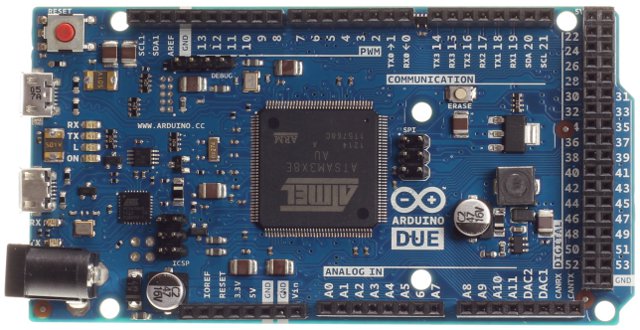Linus Torvalds has just released Linux 4.16: So the take from final week of the 4.16 release looks a lot like rc7, in that about half of it is networking. If it wasn’t for that, it would all be very small and calm. We had a number of fixes and cleanups elsewhere, but none of it made me go “uhhuh, better let this soak for another week”. And davem didn’t think the networking was a reason to delay the release, so I’m not. End result: 4.16 is out, and the merge window for 4.17 is open and I’ll start doing pull requests tomorrow. Outside of networking, most of the last week was various arch fixlets (powerpc, arm, x86, arm64), some driver fixes (mainly scsi and rdma) and misc other noise (documentation, vm, perf). The appended shortlog gives an overview of the details (again, this is only the small stuff in […]
Tock Open Source OS for Secure IoT Systems Runs on Arm Cortex-M Microcontrollers
We already have a fair share of open source operating systems running on Arm Cortex-M microcontrollers with FreeRTOS, mbed OS, Zephyr OS, RIOT, and many others. Earlier this morning, as I wrote about the Embedded Linux and IoT Summit 2018, I discovered you can now also add Tock to the list, with the operating system specifically designed for (secure) IoT on Arm Cortex-M MCUs. According to the abstract, Tock aims to enable more secure and extensible IoT systems by using a language sandbox and hardware enforced mechanism to isolate third-party and other untrusted code in the system. The operating systems is comprised of three components: A trusted core kernel written in Rust language with a HAL, scheduler and platform-specific configuration Capsules compiled with the kernel and use Rust’s type and module systems for safety; typically used for drivers & virtualization layers User-space processes using the MPU for hardware protection at runtime; […]
Flip & Click Board with Atmel SAM3X8E MCU Features 4 mikroBUS Sockets & Arduino Headers
HummingBoard Gate introduced last month was the first board I saw with a mikroBUS socket that can be used with over 150 “Click boards” by MikroElektronika adding functionalities such as sensors, OLED displays, relays, servos, and so on. But if you project don’t quite need the power of a full featured Linux board, or you simply prefer working with the Arduino IDE, MikroElektronika has just launched Flip & Click board powered by an Atmel SAM3X8E Cortex-M3 micro-controller and featuring four mikroBUS sockets on the back of the board, as well as Arduino compatible headers on the top. Flip & Click board specifications: MCU – Atmel AT91SAM3X8E Cortex M3 micro-controller @ 84MHz with 512 KB flash, 100 KB SRAM (64+32+4), also used in Arduino Due. Expansions Headers Arduino UNO compatible headers on the top 4x mikroBUS socket on the bottom USB – micro USB port for programming and power Misc – […]
$25 Flutter is a Wireless Arduino compatible Board with Up to 1 km Range
There are already several ways to add wireless connectivity to your hardware project. For short ranges, we can use protocols such as Bluetooth (e.g. RFDuino, BLEDuino projects, or Bluetooth USB dongle), for much longer ranges 3G/4G connectivity may be required, and achievable via a 3G/4G USB dongle, or SparqEE CELLv1.0 project for example. But what if you want something in the middle with a range closer to 1km? Flutter boards using the 915MHz band (US only) can provide such range, and are software compatible with the Arduino. There are two version of the board: Flutter Basic – Board with an low-profile integrated antenna. It features micro USB for power, an LED, and a button, as well as several digital and analog I/O. Flutter Pro – Board with external antenna (and probably longer range). It comes with all features found in Flutter Basic, and adds battery charging, an additional button, and […]
$59 Digitstump DigiX is an Arduino Due Compatible Board with Wi-Fi and Mesh Networking
The DigiX, by Digistump, is hobbyist board with an Atmel SAM3 Cortex M3 MCU @ 84 MHz, embedded low power Wi-Fi (b/g/n) and mesh networking,audio output, USB on the go support, and the company claims it is 100% compatible with anything that works with the Arduino Due, with some extra I/Os for a total of 99 I/O pins. The hardware specifications go as follows: MCU – Atmel AT91SAM3X8E 32-bit ARM Cortex M3 Processor @ 84 Mhz with 96KB SRAM, 512KB Flash Connectivity On-board 802.11b/g/n WiFi Module (FCC/CE Approved) On-board nRF24L01+ wireless module (removable) – 2.4Ghz band 99 I/O Pins including 12 PWM, 12 Analog Input, 2 Analog Output (DAC), CAN bus, 4x UARTs, 2x I2C, SPI, JTAG, DMA and more. Audio – 3.5mm stereo jack USB – micro USB OTG port Misc – On-board RTC, user LED Power Supply – 3.3V, 3.4-5.5V (LiPo Ready), 5V, or 6-16V input (on-board buck regulator) (Max?) Power […]
UDOO QUAD vs BeagleBone Black vs Wandboard Dual vs ODROID-X2 vs Raspberry Pi
UDOO QUAD is a development board featuring both Freescale i.MX 6Quad and an Atmel SAM3 Cortex M3 MCU, that’s currently having a very successful campaign on Kickstarter, as the total amount pledged is now close to $500,000 US. UDOO decided to put a comparison table against four other ARM Linux boards they consider their main competitors: the BeagleBone Black for its numerous I/O options, Wandboard Dual, also a Freescale i.MX6 powered board, the ODROID X2 for its powerful Exynos 4412 processor, and Raspberry Pi model B which is ubiquitous. The Cubieboard board would also have been an interesting addition, but they did not include it. As you would have guessed the green parts in the tablet shows the winner for each features according to UDOO team. These 5 boards vary greatly in terms of price, and since this is not included in the table above, I’ll mention the price of […]
UDOO Single Board Computer Features Freescale i.MX6 Dual/Quad and Atmel SAM3 MCU
Have you ever dreamed of a single board with the power of 4 Raspberry Pi and Arduino Due functionality? This dream should soon become reality thanks to UDOO single board computer. This open source hardware board is powered by Freescale i.MX6 Dual or Quad with 1GB RAM, as well as Atmel SAM3 Cortex M3 MCU that provides access to Arduino compatible headers. Here are the specifications of the board: SoC – Freescale i.MX6 ARM Cortex-A9 CPU Dual/Quad Core @ 1GHz + Vivante GPU MCU – Atmel SAM3X8E ARM Cortex-M3 (same as Arduino Due) System Memory – 1GB DDR3 Storage – micro SD (boot device) + SATA (i.MX6 Quad only) Video Output – HDMI and LVDS + Touch (I2C signals) Audio I/O – Analog Audio and Mic Expansion Headers – 54 Digital I/O + Analog Input (Arduino-compatible R3 1.0 pinout) Connectivity Ethernet RJ45 (10/100/1000 MBit) WiFi Module USB – mini USB […]
Arduino Due Cortex M3 Board is now Available
Announced a little over a year ago, the Arduino (over) Due based on Atmel SAM3U Cortex M3 MCU is finally available for purchase. The specifications of the new boards are as follows: Microcontroller – Atmel AT91SAM3X8E @ 84 Mhz Flash Memory – 512 KB SRAM – 96 KB (64 + 32 KB) Operating Voltage – 3.3V Input Voltage (recommended) – 7-12V Input Voltage (min/max) – 6-20V Digital I/O Pins – 54 including 6 supporting PWM Analog Input Pins – 12 Analog Output Pins – 2 (DAC) Total DC Output Current on all I/O lines – 130 mA DC Current for 3.3V Pin – 800 mA DC Current for 5V Pin – Theoretical 1A, recommended 800 mA Debug ports – JTAG/SWD connector The new board is mostly compatible with the AVR (8-bit) boards, but since the board runs at 3.3V some shields may not be compatible (Arduino Wi-Fi and Ethernet shields do […]


